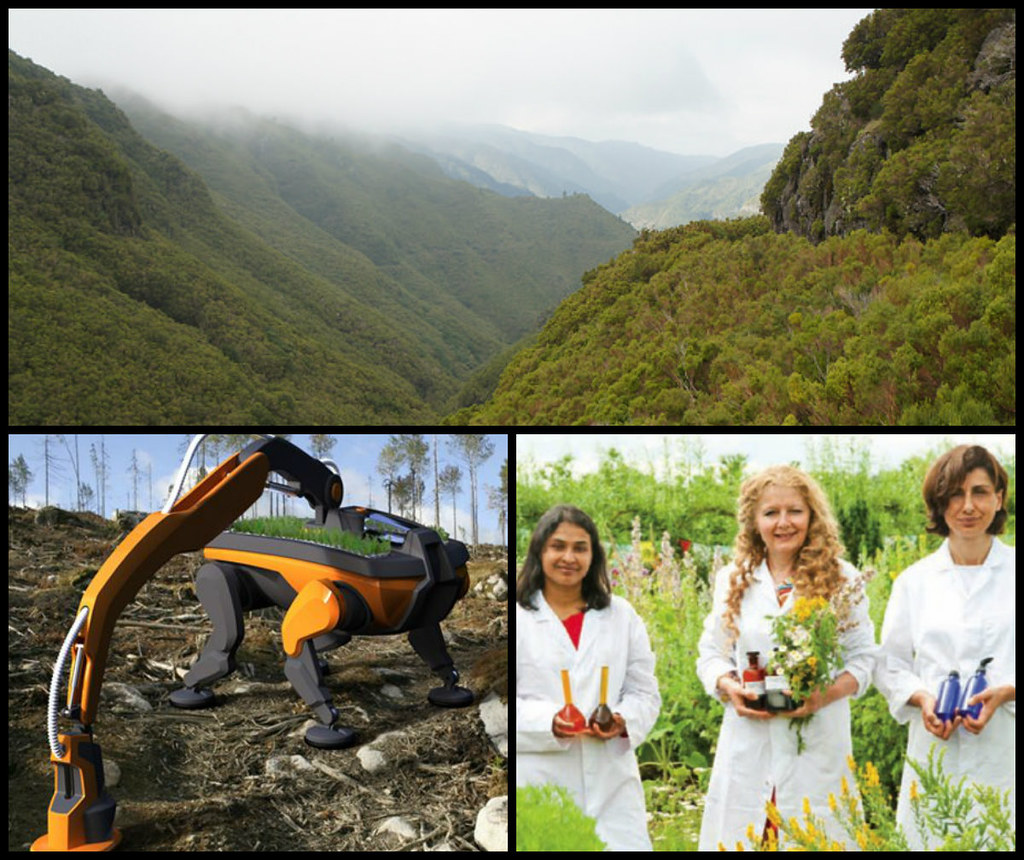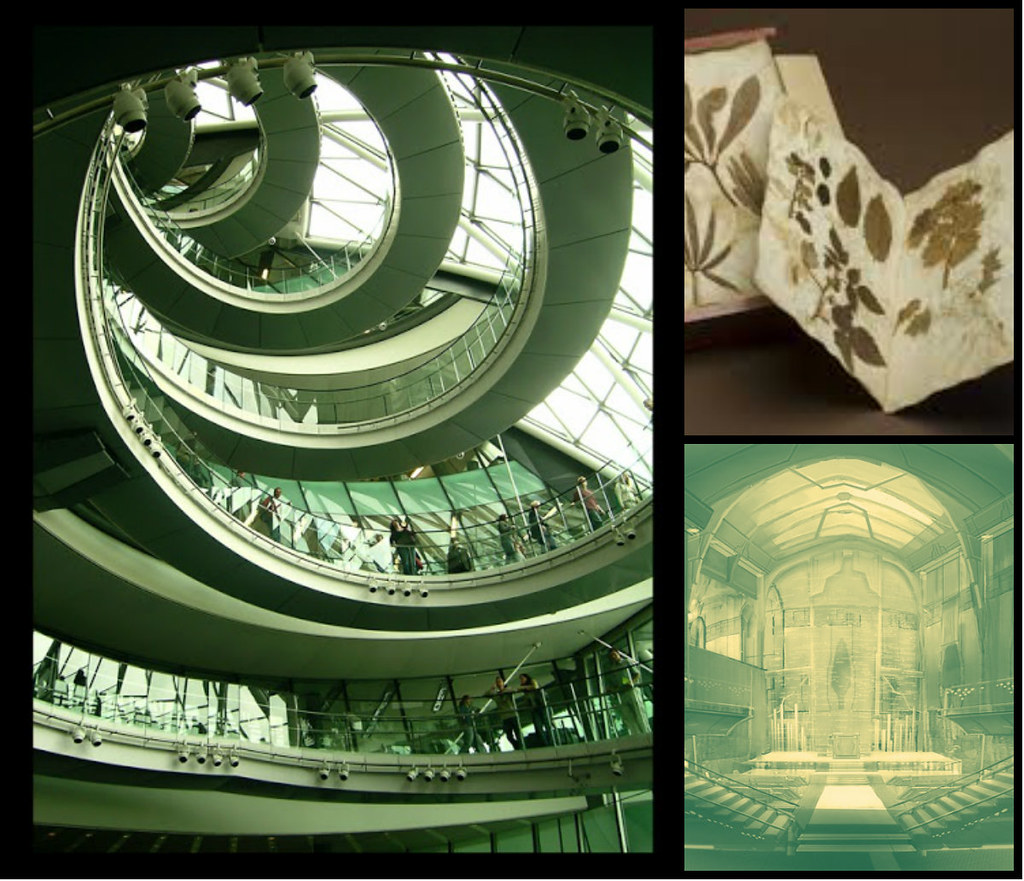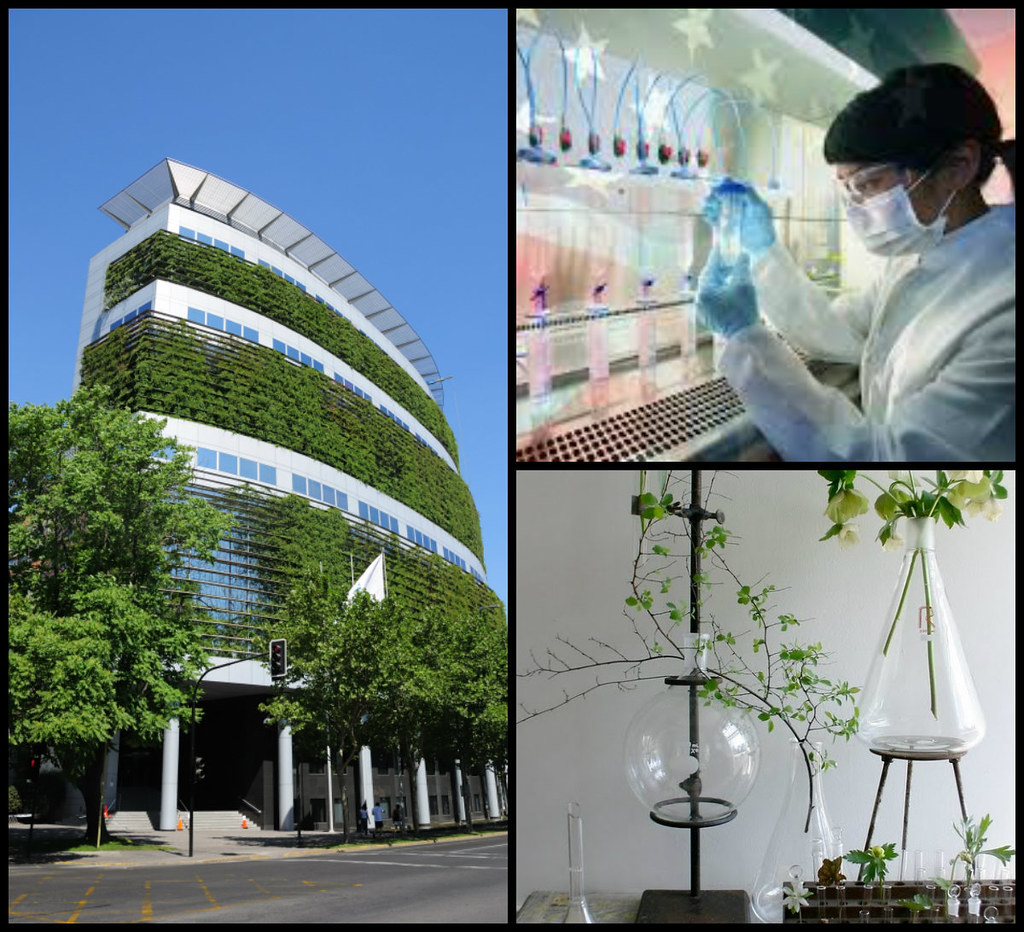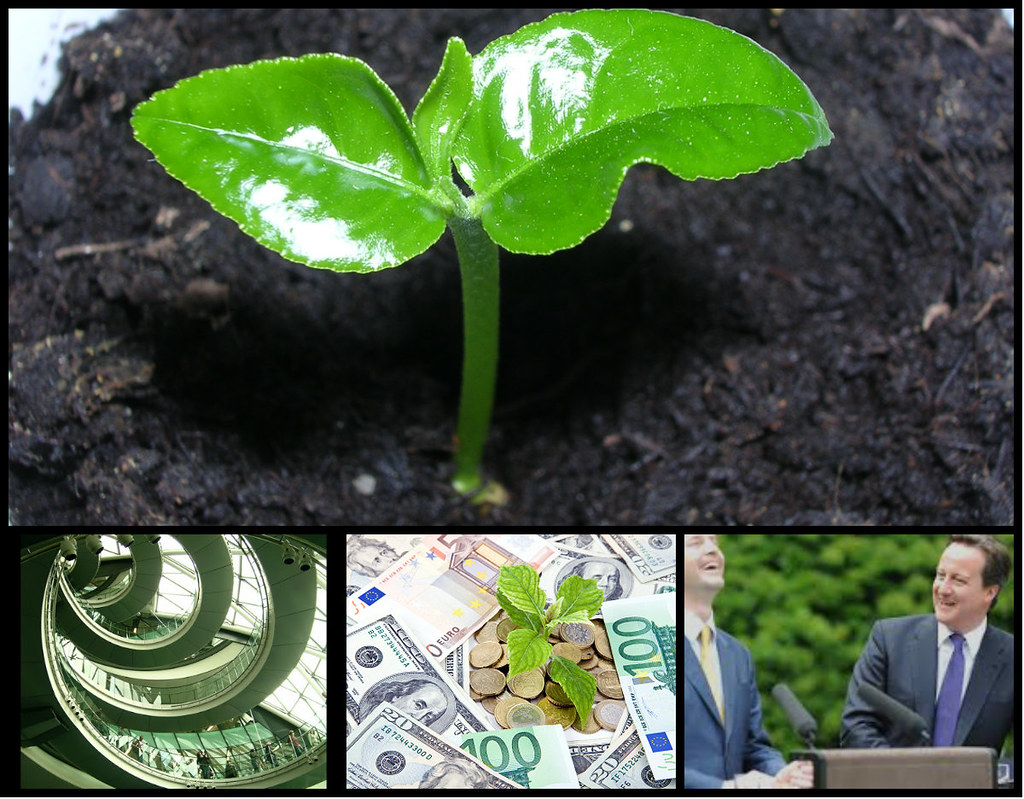Laurisilva: Discipline
The ‘discipline’ scenario envisioned a future for Madeira ruled by an academic, eco-conscious elite. The ruling party, alternately described as a ‘botanocracy’ by adherents and ‘Botanistan’ by reactionary critics, swept to power on a wave of support following the collapse of the island’s longstanding human-centric, pro-development party, which in turn was brought about by a series of natural disasters including floods and fires. Concepts and keywords forming the basis of this scenario included rewilding, quarantine, sensing and monitoring, re-education, maximum biodiversity, living lab, seed and gene banks, botanic music, migration control, and economy of PhDs.
Madeira’s governing slogans in this scenario were ‘discipline and flourish’ and ‘maximum eco-discipline, minimum eco-footprint’. The island advertised itself as ‘the ultimate eco-conference destination’ and offered access via an airshaft lift to an unspoilt conference venue in the middle of the UNESCO World Heritage protected laurisilva forest. Under the new government, the island also claimed to be ‘the world’s leading evidence-based, double-blind peer reviewed political system’.
In the most extreme part of the scenario, projected fifty years into the future, Madeira’s ‘scholarocracy’ took as its foundational text the vast herbarium compiled by Laura Silva, the pioneering botanist turned eco-goddess of the island. The herbarium was discovered some years earlier in a cave in an isolated valley, clutched to the breast of the mummified corpse of Laura herself. A climate-controlled, high-security library room overlooking a prime expanse of virgin forest was purpose built to house the book. The herbarium was used by the ruling party to build a genetic time machine, to return Madeira to a pre-settlement landscape comprised almost entirely of lush forests with a minimum of human interference.




One of three scenarios for Madeiran laurisilva futures: